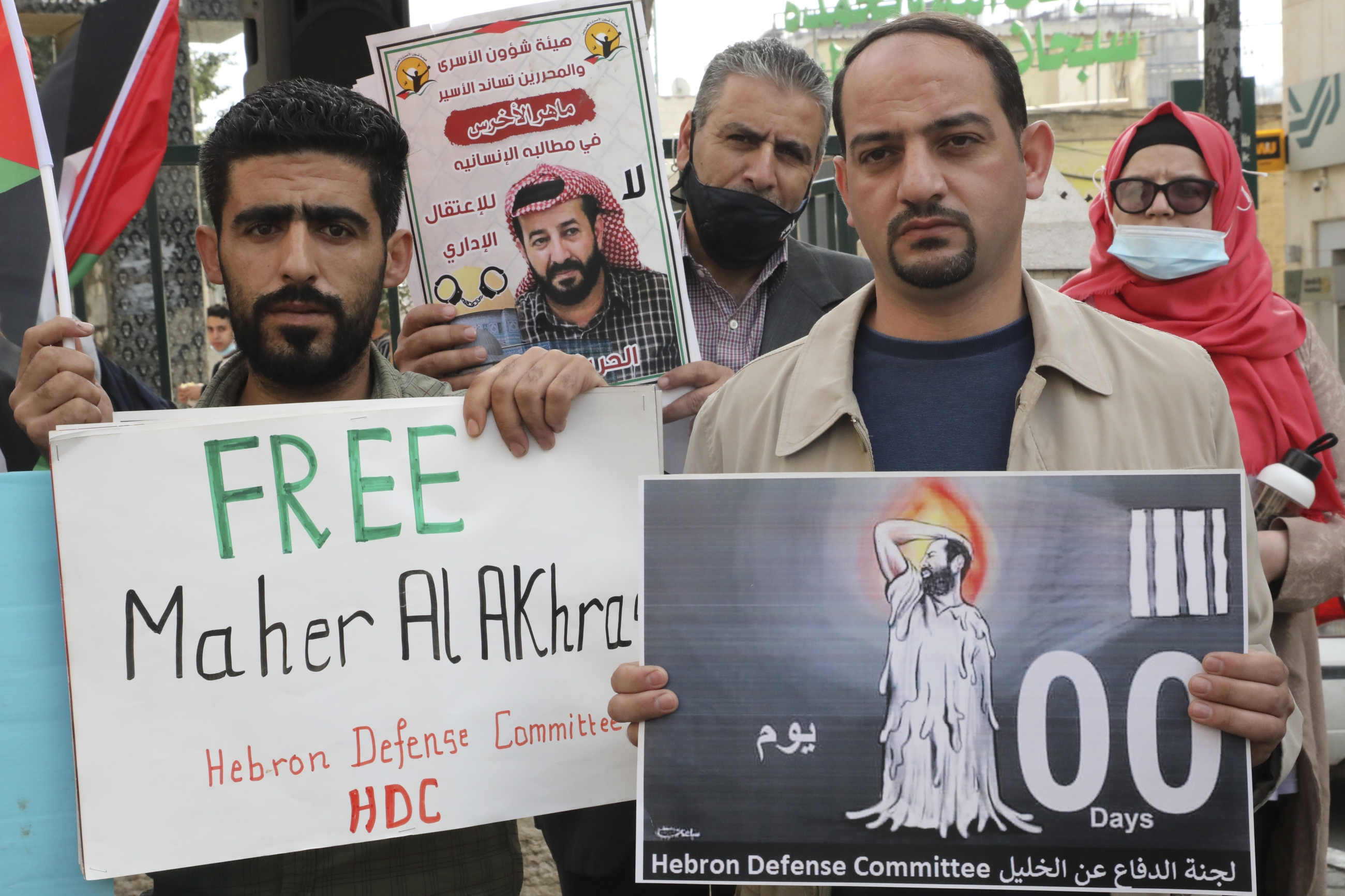Palestinian ends 103-day hunger strike after Israel agrees not to extend detention

Palestinian political prisoner Maher al-Akhras, who had been held without charge or trial since July, ended a 103-day hunger strike after securing a deal for his release, his wife said.
Taghrid al-Akhras told AFP on Friday that her husband, who was being detained by Israel for alleged membership in an armed group, had "stopped his hunger strike after 103 days".
She said that her husband's condition was still "severe," but she was happy that he would be released.
According to the Palestinian Prisoners Club, Akhras ended his hunger strike after Israeli authorities agreed not to extend his "administrative detention" beyond the original end date of 26 November.
New MEE newsletter: Jerusalem Dispatch
Sign up to get the latest insights and analysis on Israel-Palestine, alongside Turkey Unpacked and other MEE newsletters
"He will spend the remaining period until his release receiving treatment in the hospital," the statement added.
Without food or drink for 103 days
Palestinian Prime Minister Mohammad Shtayyeh had demanded his immediate release, as had Palestinian protesters in the occupied West Bank, Gaza and Israel.
Akhras, 49, was arrested on 27 July and immediately went on hunger strike, not accepting food or drink. He was hospitalised at Kaplan Medical Centre in September, where he remains.
Israel's internal intelligence agency, Shin Bet, claimed that Akhras was a member of the Islamic Jihad, an allegation his wife denied.
Born in 1971 in the village of Salileh, near the city of Jenin in the northern occupied West Bank, Akhras, a father of six, has been imprisoned by Israeli authorities at least five times since he was 18 for a total of at least five years.
He was detained for seven months in 1989; for two years starting in 2004; 16 months starting in 2009; 11 months in 2018; and most recently in July.
The European External Action Service, the diplomatic service of the European Union (EU), warned last week that Akhras's health was deteriorating.
"Regardless of the allegations against Mr al-Akhras, the European Union reiterates its long-standing concerns about the extensive use by Israel of administrative detention without formal charges," it said in a statement.
'A tool for collective punishment
Israel's controversial administrative detention mechanism allows Palestinians to be imprisoned for renewable three- to six-month periods indefinitely and without charge.
Used almost exclusively against Palestinians, those being held under the mechanism are not granted the possibility of appeal or knowing what accusations are being levelled against them.
About 350 Palestinians are currently being held under administrative detention, including two Palestinian legislative council members, according to prisoners' rights group Addameer.
"Although the use of administrative detention in a widespread and systemic manner is prohibited under international law, the Israeli occupation uses administrative detention as a tool for collective punishment against Palestinians," Addameer said.
Israel is currently holding about 4,400 Palestinian political prisoners through its military court system, according to Addameer, including 155 minors and eight legislative council members.
Palestinians from the occupied West Bank and Gaza are tried exclusively under Israel's military court system, which in 2010 self-reported a 99.74 percent conviction rate.
Israeli settlers, even when committing a crime in the occupied West Bank, are tried in civilian courts.
Palestinians under the military court system are tried as adults at age 16, while the standard Israeli justice system sets the age of majority at 18.
Middle East Eye delivers independent and unrivalled coverage and analysis of the Middle East, North Africa and beyond. To learn more about republishing this content and the associated fees, please fill out this form. More about MEE can be found here.





